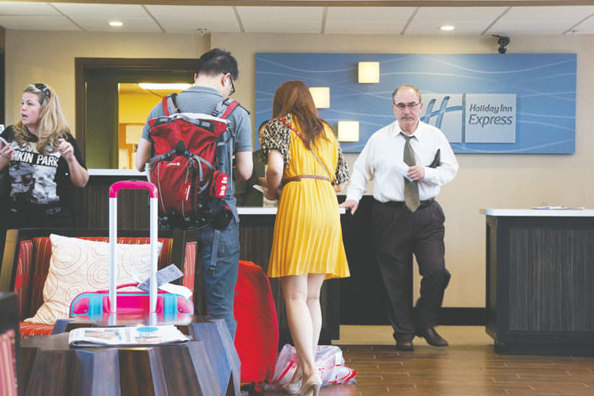GreenTree set to branch out in US
Updated: 2013-06-24 11:16
By Michael Barris in New York (China Daily)
|
|||||||||
|
The San Francisco Airport South Holiday Inn Express will be rebranded as a GreenTree Inn, says Alex Xu, CEO and chairman of GreenTree Inns. Chen Jia / China Daily |
Some folks have long work commutes. Alex Xu's is extreme.
The CEO and chairman of GreenTree Inns Hotel Management Corp jets back and forth between Shanghai and Los Angeles so frequently that he knows the flight attendants' names.
But Xu's close knowledge of China and the United States has given the hard-working Chinese American a distinct perspective on the hospitality industry - and a management philosophy that is guiding his budget-hotel chain's expansion into the US.
"The ways of being a leader and managing people are essentially the same," Xu said in an interview. "The East and West, value-wise, are pretty much the same. So whatever you do that is kindly to other people, will one day be returned."
Xu, along with a number of American investors, has spent a decade building GreenTree into a concern with 1,450 hotels (including more than 400 under development) and 35,000 employees in 400 cities in China, mainly targeting business travelers. In 10 years, he hopes to have 1,000 small- and medium-sized hotels in the US.
That US push will bring some of his work closer to his Los Angeles-area office in Rancho Cucamonga and home in San Marino.
"My base of operations has always been in Southern California, so it is a natural extension for me to expand in the US," said Xu, 48, who was born in Shandong province and moved to California in 1987 to study at the University of Southern California.
He plans to build GreenTree's US branch primarily through acquisitions, as well as joint ventures and franchising agreements. A 192-room GreenTree Inn under construction in Salt Lake City, Utah is expected to open for business late this year or early in 2014, Xu said.
GreenTree's US operations will also include a 150-room hotel in Burlingame, California, located on the San Francisco Bay, southeast of that city's airport. The hotel, now called the San Francisco Airport South Holiday Inn Express, will be rebranded as a GreenTree Inn, Xu said. GreenTree acquired the hotel from a subsidiary of insurer American International Group Inc in 2011.
A 2006 article in the Los Angeles Times said that Xu grew up poor in a farming village near Weihai, southeast of Beijing. His father was a doctor who did farm work during the Cultural Revolution, while his mother worked for the local government.
After graduating from the Beijing Institute of Technology, Xu attended USC on a scholarship, earning a master's degree in applied mathematics and engineering. But he changed direction and began to pursue a business career. Through the relationship he formed with Brian Fleming, an executive whose daughter he had tutored in math, Xu went on to manage finances for the Broadway Stores Inc chain and Santa Anita racetrack operator, Santa Anita Realty Enterprises Inc. He also built homes, mainly in Ventura County, as president of American Pacific Homes Inc.
In 2003, Xu began building GreenTree. By 2007, the chain had more than 200 hotels, according to the company's website. The average GreenTree hotel has 100 rooms and a room rate of $180 to $280 per night.
The hotels are grouped under four brand names. The standard GreenTree Inn, which accounts for 90 percent of the chain, caters to budget-conscious business travelers, with some locations earning three-star ratings from local tourism bureaus. Green Tree Eastern includes 25 four-star hotels located in business centers that serve guests who want a "green, healthy and high quality lifestyle".
GreenTree Alliance includes 100, three- or four-star hotels that incorporate natural settings into their design. And Vatica comprises 10 hotels, targeting young white-collar travelers who prefer a location that supports a "green", "low carbon" lifestyle.
Xu is launching his expansion bid amid an improving outlook for the US hospitality sector, which was hard hit by the global economic downturn of 2008.
"Now is probably the time to buy hotels," hotel lawyer Jim Butler wrote in the HotelLawBlog. "All of the fears that have been endlessly rehashed these past few years - an uncertain economy, continuing high levels of unemployment, the election, the fiscal cliff, troubles in Europe - did not prevent business or leisure travelers from taking trips and staying at hotels." Butler predicted that the hotel industry "will steadily improve for the next five years".
That view is echoed by PriceWaterhouseCoopers LLP, which sees rising room demand and revenue per available room, a closely watched industry performance metric, boosting the industry occupancy rate to 62 percent this year, the highest level since 2007.
Xu's own prediction is that "the US hospitality market will continue to perform very well," at least through 2017, aided by strong demand in the US South and West Coast as well as New York City. But Xu's forecast has one big caveat - that "the economy for the US and especially China will not have a major collapse".
Xu is no stranger to navigating economic ups and downs. He says concentrating mainly on his business interests in China years ago allowed him to avoid being dragged down by the US subprime mortgage crisis and financial crisis that brought on the global recession. Although the downturn cooled off China's breakaway economic expansion to a seven-year low of 9 percent, its GDP at the height of the crisis was still stronger than that of other countries.
Xu's international business experience has led him to stress the importance of treating people fairly. He has a theory that some cross-border business ventures founder because the leaders fail to build genuine relationships with stakeholders, including employees.
michaelbarris@chinadailyusa.com
(China Daily USA 06/24/2013 page2)

 Philippine, US start Naval exercise in S China Sea
Philippine, US start Naval exercise in S China Sea
 Supreme Court gay rights ruling celebrated across US
Supreme Court gay rights ruling celebrated across US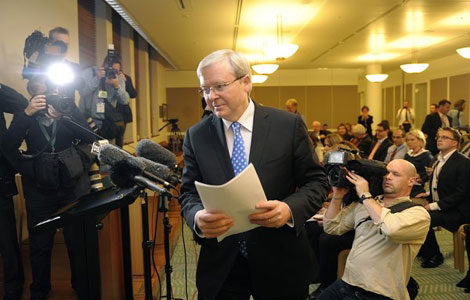
 Rudd returns as Australian PM after Gillard
Rudd returns as Australian PM after Gillard
 Brazil protests intensify before Confed Cup semifinal
Brazil protests intensify before Confed Cup semifinal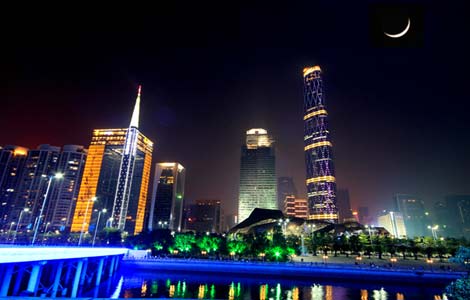
 Long lost weekend
Long lost weekend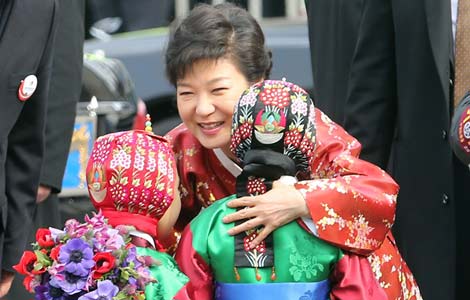
 Park ready to charm China
Park ready to charm China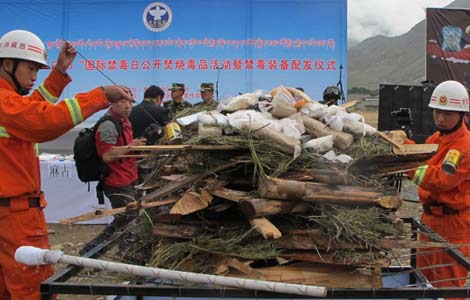
 Prices climb as police crack down
Prices climb as police crack down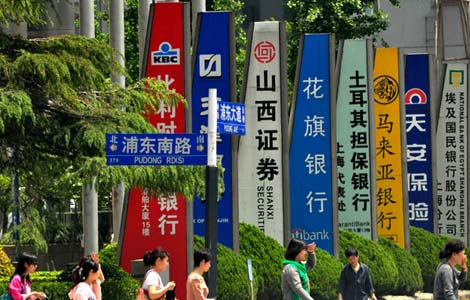
 China 'most promising' in FDI
China 'most promising' in FDI
Most Viewed
Editor's Picks

|

|

|

|

|

|
Today's Top News
Proposed law puts curbs on family visas
Markets will stay volatile, continue to struggle: Expert
Promising outlook on US, China investment
US adoptees visit Chinese roots
Ecuador refutes Washington Post accusation
IBM to make Chinese job cuts
PBOC ends credit crunch, to go further
Snowden still at Moscow's airport, asylum pending
US Weekly

|

|
